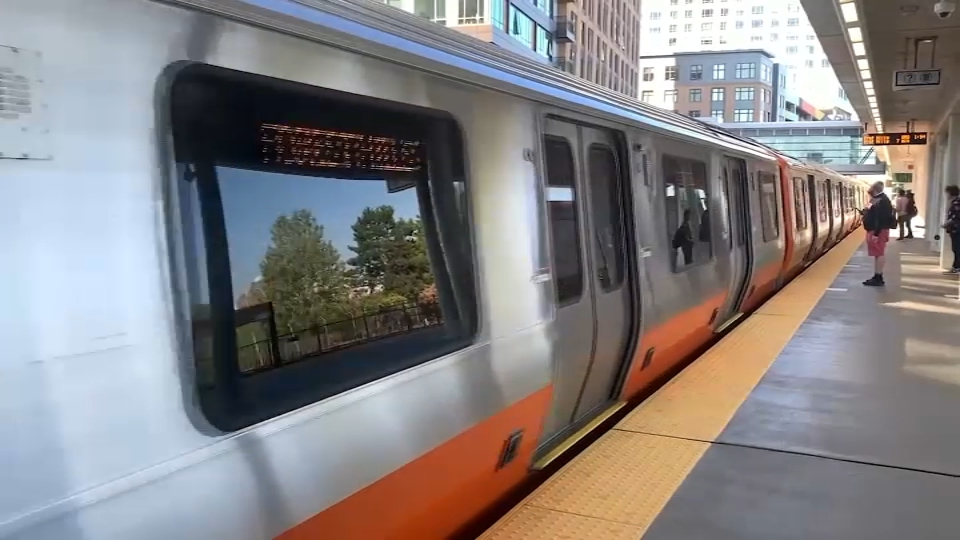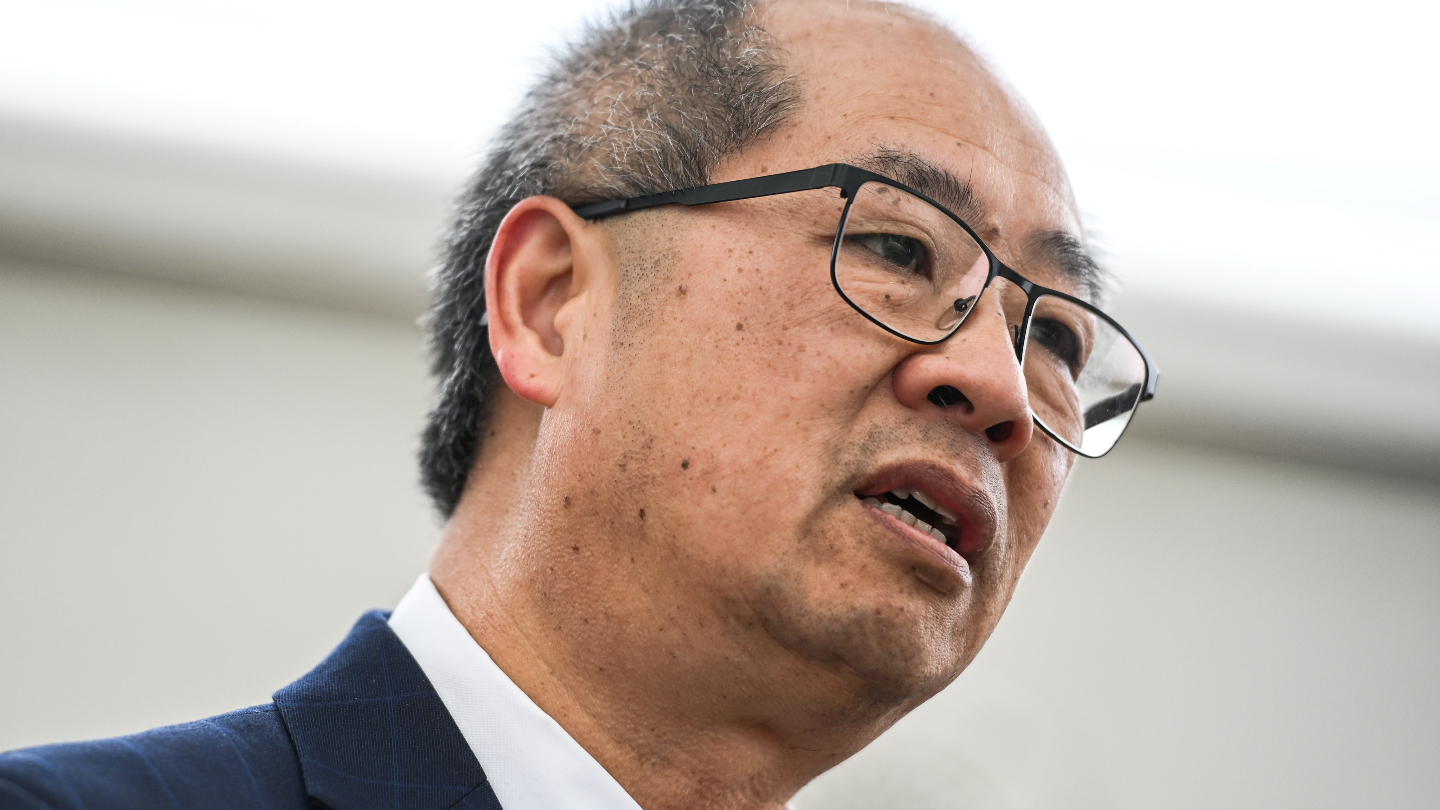Federal regulators once again ordered the MBTA to make immediate changes after a series of incidents in which employees narrowly avoided being struck by trains, a repeat of the same "near miss" issue that landed the T in the spotlight earlier this year.
The new letter from FTA Chief Safety Officer Joe DeLorenzo reopens scrutiny on near misses, when moving trains and trolleys almost struck workers who were on or near the tracks, after federal officials earlier this year flagged a previous series of similar incidents at the MBTA. The T already had to implement a new worker safety plan to comply with FTA orders that stemmed from the first series of near misses.
"Despite taking these actions, over the last month MBTA has experienced four additional near miss events, including two incidents on the Red Line and two on the Green Line," DeLorenzo wrote in a letter dated Thursday. "The MBTA also failed to report these near misses as required by the Massachusetts Department of Public Utilities (DPU)."
Failure to comply, DeLorenzo wrote, might result in the T losing all employee access to the track right-of-way including for maintenance and inspections -- a dramatic restriction that could effectively bring subway service to a halt -- until the FTA "is confident that the MBTA can ensure workers are adequately protected from collisions."
"These near misses show that we have more work to do, absolutely," MBTA General Manager Phillip Eng told NBC10 Boston Thursday. "We don't want them to happen, they're not acceptable."
MBTA officials alerted the FTA earlier this week about three near misses: one involving a Red Line train on Aug. 10, another on the Green Line on Aug. 28 and a third on the Red Line on Sept. 6, as the Boston Globe reported Wednesday.
Details about the fourth recent incident, which the FTA said occurred on the Green Line, were not immediately available Thursday.
In his letter to the FTA disclosing the incidents, Eng said safety on and around MBTA equipment and property is "unambiguously my number one concern."
"I can also say that since I have joined, I have observed that it is the number one concern of my senior leaders and we are all working daily to change the entire culture of the organization to instill a safety-first mindset," Eng wrote. "This is why we are disappointed that the organization continues to struggle with near misses, but also why it is critical that the FTA understand the lengths we are taking at the MBTA to respond to and learn from these events, as well as correct any process or procedure failures that allow them to continue to happen."
Effective immediately, the MBTA must inform the FTA within two hours of any near miss, plus submit preliminary and final investigation reports within 30 days of each incident.
The MBTA also has four business days to submit a "detailed explanation of the delays in reporting near misses that have occurred since August 1, 2023, to both the MBTA Safety department and the DPU." T officials were previously required to inform the DPU of near misses, but they were not required to tell the FTA until the new instructions given Thursday.
Eng told NBC10 Boston the MBTA would do what the FTA required.
"A lot of it is consistent with what we already had planned in place to do. There were a few additional measures that they asked us to take and requiring us to take, and we're certainly going to work with them to comply," he said.
During a Thursday meeting of the MBTA Board of Directors safety subcommittee, Department of Transportation Chief Safety Officer Patrick Lavin described a "disconnect" in existing communication procedures.
"In one incident, there was a near miss. We didn't find out about it as management until four days later," Lavin told board members. "I can't report it if I'm not aware of it, so there's some disconnect there."
A T spokesperson said after the meeting that the Aug. 28 near miss was reported to DPU on Aug. 31, three days later. The other two incidents the MBTA has disclosed were reported to DPU on the day they occurred, the spokesperson said.
The FTA's new letter also ordered the MBTA within seven business days to conduct a "comprehensive analysis" of each near miss since Aug. 1 and create an itemized list of actions to prevent similar problems in the future.
Federal regulators prohibited the use of "lone workers" on foot in the right-of-way until the MBTA can prove "sufficient procedures are in place to protect these workers." Other worker deployments will be restricted, but not banned, while the T works on improving visibility, preparation and other precautions.
All operations control center dispatchers and supervisors will need to undergo additional training, and train operators will need to be briefed on worker locations before starting their shifts. The T must also develop a plan to ensure the "accuracy of bi-directional communication" between workers out on the tracks and dispatchers in the control center under the FTA's orders.
Including the incidents that prompted the FTA's springtime warning and the latest crop, there have now been at least nine near misses this year between moving trains and workers in the area of MBTA tracks.
Asked at an unrelated event Thursday why the problem continues to occur, Gov. Maura Healey replied by pointing out that Eng voluntarily reported three of the near misses before the FTA began requiring prompt notification.
"Corrective action has already started before even receiving the FTA letter, so we're just going to continue to go forth," Healey, who took office in January, said. "[Eng] is empowered to do everything that needs to be done to ensure the safety of those lines. That is the top priority, and we want to ensure public confidence in that. I understand we're not there yet, but we are working hard every day to get there."
Healey said she believes the MBTA "is getting better" despite widespread speed restrictions that continue to plague service. Challenges are especially pronounced on the Red Line, which TransitMatters data show is operating with some of the slowest speeds and fewest active trains in years.
"We walked into a situation nine months ago where there were severe shortages, severe issues in terms of operations. General Manager Eng has taken steps. We're in constant communication with him," Healey said in response to a question about whether the MBTA is improving. "There is more work to be done and there will be more announcements about both organizational changes and practice changes. But the answer to that question is yes."
The FTA last year conducted a sweeping, nearly unprecedented safety investigation into the MBTA and found a wide range of problems in need of attention, including persistent communications breakdowns and regular staffing shortages.
Federal regulators ordered a bevy of changes, but stopped short of taking control of any MBTA operations or oversight. Asked Thursday if the FTA was considering more direct intervention, a spokesperson did not answer directly and instead summarized the letter sent Thursday.
"FTA, in collaboration with MBTA's state safety oversight agency, the Massachusetts Department of Public Utilities, will closely monitor MBTA's implementation of these actions," the spokesperson said. "FTA will continue to work with both organizations to strengthen safety for MBTA's workers."
During Thursday's safety subcommittee meeting, MBTA Board of Directors member Robert Butler referred to DeLorenzo's new correspondence as a "nasty letter."
"You said you meet with [the FTA] all the time, right? To come out with a letter like that, it's kind of harsh, ain't it, a little bit, if you're meeting with them?" Butler said during Lavin's presentation.
"Not in my experience, sir," Lavin replied. "I did this for three years in Washington. This is not an uncommon occurrence."
"I got skin like an alligator," he added.



